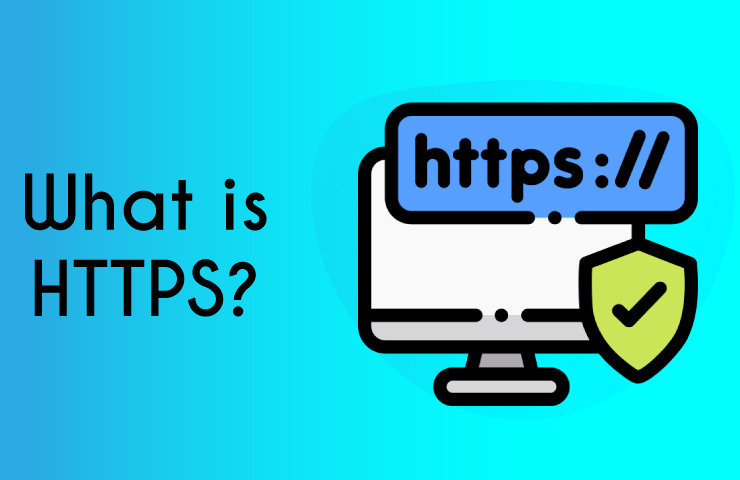What Does HTTPS Mean?
HTTPS stands for HyperText Transfer Protocol Secure. It is a protocol used for a secure connection between the two platforms, e.g., the web server and browser.
HTTPS transmits data in a secure format. This means that HTTPS blocks hackers from reading and altering the information during the transfer between the web server and the browser. Furthermore, even if hackers are able to intercept the data, they are not in a position to access it since the data is encrypted.
HyperText Transfer Protocol Secure created an encrypted connection between the client and the server, using SSL or the Secure Socket Layer (SSL) or Transport Layer Security (TLS) protocols. TLS is the latest variant of SSL.
Implementation: HTTPS Protocol is mostly used by websites dealing with monetary value transactions or transfer of personal information, which is extremely sensitive. Websites that deal with banking are typical examples. In simple terms, HTTPS makes sure that people watch websites they wish to see.
How does HTTPS work?
Hypertext Transfer Protocol Secure uses an encryption protocol that secures communications. The protocol is referred to as Transport Layer Security (TLS); however, it was previously named Secure Sockets Layer (SSL). This protocol protects communications by making use of an Asymmetric Public Key Infrastructure. This kind of security system makes use of two different keys to decrypt the communications between two parties.
- The private key is managed by the proprietor of a website and in private, as readers may have guessed. The key is stored on a server for web hosting and can be used to decrypt data that is encrypted using its public keys.
- The public key is accessible to anyone who would like to connect to servers in a safe manner. The information that’s encrypted with the public key is able to be decrypted using an encrypted private key.
Why Use HTTPS?
In 2021, sites that don’t use HTTPS or offer mixed content (serving content such as images through HTTP pages) are susceptible to security warnings from browsers and mistakes. Additionally, these websites inadvertently harm their user’s privacy and security and aren’t favored by algorithmic search engines. Thus, hypertext transfer protocol and mixed-content websites are likely to receive more warnings from browsers and errors, less trust from users, and a lower SEO than websites that have been able to use HTTPS.
How does a website start using HTTPS?
Numerous hosting companies, as well as other services, will provide TLS/SSL certificates at a cost. These certificates can be distributed among numerous customers. There are more expensive certificates available that can be associated with specific websites.
Every website that uses Cloudflare gets HTTPS free by using shared certificates (the technical term used to describe it is called a multi-domain SSL certificate). Signing up for free accounts will ensure the property’s web page is continuously updated with HTTPS security. Additionally, you can look into our paid plans to purchase specific certificates as well as other options. In any case, a web-based property gets all the advantages from using HTTPS.
How do I enable HTTPS on my website?
For a site that is public by using HTTPS, it’s essential that you install an SSL or TLS certificate that is signed by a trusted public certification authority (CA) to your website server. SSL.com’s knowledge base is packed with useful guides and tips to set up a range of websites to accept HTTPS.
Disadvantages & Advantages of HTTPS
Price
If you decide to switch to hypertext transfer protocol secure and you want to buy the SSL certificate. While the majority of SSL certificates come from the hosting company that hosts websites, they are required to be renewed every year by paying an annual fee. Additionally, there are options to obtain a no-cost SSL certificate, but due to security reasons, it’s not advised.
Accessibility
There are filters and systems for a proxy that prevents access to HTTPS websites. This could be deliberate or unintentional. In the event of an accident administrator, they might not have allowed users to access HTTPS. Sometimes, this is deliberate to protect the system.
Performance
HTTPS connection involves a number of calculations to encode as well as decrypt information. Therefore, the time to respond can be delayed, which slows the performance of the website.
Computing Overhead
In decrypting and encrypting data, extra computing costs are absorbed by both web browsers and servers. But, these additional costs are typically not apparent as the latency is increased by a connection configuration. However, if your HTTPS connection manages several HTTPS connections at once, this may be a problem.
Caching
Specific content will experience issues with caching using HTTPS. The public caching that occurred in the past will not be repeated. This means that ISPs will not be able to store encrypted content. This kind of issue is generally encountered by sites that have vast numbers of visitors. But, because of increased bandwidth, these issues can be combated.
Mixed Content
If there is an issue with setting up, the website will begin downloading files using HTTP rather than HTTPS. In the time span, users will receive an alert message that indicates insecure content.
 Global Elix
Global Elix 

